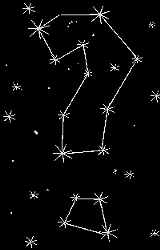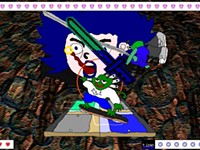[
{
"name": "500x250 Ad",
"insertPoint": "5",
"component": "15667920",
"parentWrapperClass": "",
"requiredCountToDisplay": "1"
}
]
Is it appropriate for our nation's leaders to consult astrologers on critical decisions? Should you check your horoscope when buying a car? In this column, I will show why astrology is 99.9 percent bunk.
Astrology is confused in some people's minds with astronomy. The latter is a meticulously accurate body of knowledge that describes the position and movement of the sun, moon, planets, and other objects in our solar system, our galaxy, and beyond. Astronomers have studied the chemical composition of many of these objects and the energy they radiate.
Astrologers use a very small part of this knowledge in their attempts to determine the temperament of individual humans and the personal circumstances of their lives. The facts borrowed from astronomy are the only parts of astrology that can claim the name "science." The rest is pure hokum.
It's a safe bet that, except for the sun and moon, most modern astrologers don't even know where to look to find the celestial objects their charts depict. They wouldn't know Mars from Saturn, nor could they tell you, by looking at it, whether the moon is waxing or waning. Everything they know comes from tables, printed protocols, and nowadays, computer programs.
To be fair, astrology is the godfather of astronomy. In ancient times, whatever facts were discovered about the solar system were incorporated into astrology. Even in the 17th century, astrology and astronomy were not entirely distinguishable. Johannes Kepler and Tycho Brahe, two giants of astronomy, were sympathetic to astrology. Today, however, astronomy and astrology are separate domains.
Here are just 10 of the many reasons why astrology is nonsense.
1. There are no name tags on the planets. How do we know Jupiter is really Jupiter? Maybe Jupiter is Mars. The names of the five planets known to the ancients were arbitrarily assigned. If Jupiter were re-named Mickey Mouse, it wouldn't make the slightest difference to anybody but astrologers. To attribute human personality traits to a planet, based on its name and the mythology behind it, makes no sense whatsoever.
In the same way, the signs of the Zodiac could have been given different names, and nobody but astrologers would care. A completely new system of astrology could be constructed with the signs of the zodiac named after characters in Star Wars (Yoda, JarJar, Jabba), each "ruled" by a fictional planet from Star Trek. Revised horoscopes based on the new zodiac would be every bit as valid as those constructed using the traditional mythological animals and gods.
In fact, a different system of astrology already exists in Asia, called Vedic astrology. But let's debunk one system at a time.
2. The stars of most constellations are not related to each other. In Taurus, for example, the star Aldebaran --- the red eye of the bull --- is only half as far from the Earth as the Hyades, the stars that make up the rest of the bull's head. The Pleiades, another star-cluster in Taurus, is eight times as far away as Aldebaran. Seen from another place in our galaxy, there wouldn't be any Taurus. The constellation Taurus is an artifact of our perspective. The same is true for the rest of the zodiac.
3. The sky isn't what it used to be. Over the course of the past few thousand years, a lot has changed. The Earth wobbles on its axis, causing the place the Earth's axis points --- the celestial north pole --- to move around in a big circle. As a consequence, the stars today aren't where they were when the early astrologers plotted the zodiac.
An obvious example is the North Star. In our sky, it's Polaris, in the constellation Ursa Minor. When the Egyptian pyramids were under construction, the North Star was Thuban, in the constellation Draco. Several thousand years from now, the star Vega, in the constellation Lyra, will take over.
The signs of the zodiac have been shifting, too. For astrology, the significance of the precession of the equinoxes should be catastrophic, but oddly, it isn't. The "first point of Aries," the place where the zodiacal cycle begins each year, is no longer in Aries; it's in Pisces. Eventually, it will be in Aquarius --- the "dawning of the age of Aquarius," as the song says. The entire rationale for the system of zodiacal signs and "houses" is, therefore, outdated. But astrologers blithely continue to cast horoscopes based on the wrong signs.
A few astrologers do use an updated "sidereal" zodiac, but they're vastly outnumbered by those who are stuck in the old "tropical" zodiac. Of course, it really doesn't matter. Updated nonsense is still nonsense.
4. No mechanism for astrology is known. How do the planets and zodiacal signs work their influence? Gravity exerted by the moon and the sun causes tides on Earth, and tides can affect the lives of people, but all people in the same circumstances are subject to the same effects. Similarly, the sun affects life on earth by providing energy, but again, all people are subject to the same energy.
At the moment a baby is born, the gravitational pull from the doctor or midwife is much greater than the gravity from any of the planets. But distance means nothing to astrologers. When Jupiter is on the opposite side of the sun from us, it is accorded the same significance as when it's on our side of the sun --- even though the difference in distance is many millions of miles. If distance is not important, then why not count the effect of all the other objects in the universe? There's a lot of stuff out there.
If there are such things as astrological "forces," why aren't babies in the womb susceptible from the moment of conception? If brick walls don't block a planet's influence, an inch or so of a mother's abdominal tissue surely wouldn't.
Actually, no causal mechanism is known, and astrologers themselves admit it. Here's a quote from page 190 of The New Compleat Astrologer, by Derek and Julia Parker: "Nothing is so far known about the nature of the force which lies behind the theory of astrology."
If nothing is known about it, how can they assume it exists? In answer, astrologers point to past discoveries of previously unknown sources of energy, like electromagnetic radiation. Isn't it possible that more will be discovered? Yes it is, but there's no reason to believe that individual human lives will be affected selectively --- as astrology requires.
When Isaac Asimov was asked if he thought it was possible that aliens were circling Earth, he said, "If they are, we don't know about it." Saying something is possibly possible isn't the same as saying it's really possible, or even likely to be possible.
Note, too, the misuse of the word "theory" in the Parker quote. In legitimate science, theories must be constructed so they're subject to disproof. Astrological assertions are too vague to be either proved or disproved.
Astrologers support each other come what may. Contrast this with science. Finding a flaw in somebody else's theory is a feather in a scientist's cap. Scientists don't agree with Darwin's theory of evolution just because they feel a need for solidarity. They agree --- to the extent that they do agree --- because they can't find good reasons not to agree. But they're working on it. If the theory of evolution can be overturned, or modified, by evidence and reason, be assured that scientists will do it themselves.
5. Astrologers don't care about causality. To hedge their bets, many astrologers don't claim that the planets and stars cause events on earth, just that people are in a state of synchronicity with astrological phenomena. They believe we can tap into the big scheme of things to learn our individual parts in it. This might make sense if there were any evidence of a direct personal connection to point to. There isn't any.
6. Astrologers ignore genetic differences. They would have us believe that a baby's inherited traits play no part in its adult personality, that the thousands of babies born at the same moment throughout the world will grow up to have identical temperaments, regardless of wide differences in genetic makeup. The fabricators of astrology didn't know about DNA, of course, or even cells. It's time they got with the program.
7. Knowing more about nonsense doesn't make it true. An otherwise intelligent friend of mine insists that if I knew more about astrology, I'd come to accept its truth. She says it is a difficult subject that one has to study to understand. Maybe so, but just becoming an expert on Tolkien's world doesn't make Hobbits real.
If, at your present stage of life, you believe in astrology, neither I nor anybody else is likely to talk you out of it. Belief trumps reason. It heeds no argument and needs no proof.
8. The ancients didn't know statistics. They had no way of testing their classifications of human personality. Astrologers lived among, and catered to, the privileged class. Whatever conclusions they reached about human nature were based on biased samples and skewed distributions.
Even today, there is little agreement on how to identify and classify personality types --- if such types even exist.
9. When Saturn is "in" Leo, it isn't "in" Leo. If you hold up your spread fingers so that Saturn appears in the space between your thumb and index finger, Saturn will be "in" your hand. That's exactly how Saturn comes to be "in" any constellation of the zodiac. The planets have no connection whatsoever with the constellations they pass in front of.The same is true for the sun.
10. Astrology doesn't work. Nobody has ever produced testable evidence that people's characters, personalities, or personal destinies are related to, or influenced by, the positions and movements of the sun, stars, moon, or planets. To quote a scientific maxim, "extraordinary claims demand extraordinary proof." Unsubstantiated anecdotes don't prove anything. Nor do individual cases, even if they're documented.
Rare cases of successful predictions are often cited to support astrologers' claims, but the vastly greater number of failures are swept under the rug.
11. (Bonus point) What about Uranus, Neptune, and Pluto? These relatively recentlydiscovered planets (1781, 1846, 1930) caused astrologers considerable embarrassment. Without them, weren't all previous horoscopes wrong?
The new planet Neptune was deemed to "rule" Pisces (the fishes) because, in mythology, the god Neptune ruled the sea. But what if Neptune had been given the name of a then-contemporary figure --- say, Charles Darwin? The new planet "Chuck" would need a different sign to rule, right? Maybe Taurus (for chuck roast).
Playing the devil's advocate, I certainly don't mean to diss the role of fiction and fantasy in human affairs. Fiction is so firmly established, it's hard to imagine life without it. Billions are spent on it annually. Astrology has the added appeal of being interactive fiction --- you get to play a role in a fabulous story, along with charismatic gods and mythological creatures.
Fiction, in general, provides a reservoir of universal references that lubricate and amplify human discourse. Among other benefits, allusions to fiction offer a remarkable economy of words. Remember President Reagan's "Make my day!" In three words from Dirty Harry, he summed up the administration's entire fiscal policy.
And, of course, Nancy Reagan relied heavily on astrology and counseled her husband regularly.
As the neurologist Oliver Sacks points out, strict rationality can be an onerous burden. For some people, relief from the responsibilities of reason can be found in the fictions of astrology. But let's not forget it's fiction.
Latest in Culture
More by Warren Wightman
-

Will Shortz is not a fiend
Dec 14, 2005 -

Dash and swoop
Jul 21, 2004 -

The rockets' red (white and blue) glare
Jun 26, 2002 - More »



